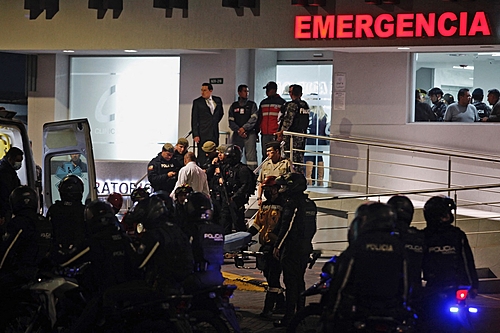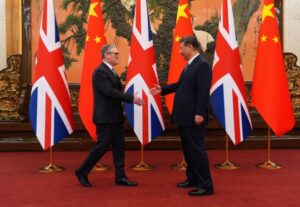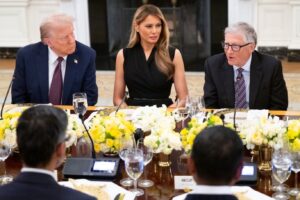
The death of presidential candidate Fernando Villavicencio, assassinated last Wednesday (9), threw spotlights and drew the world’s attention to the political and social crisis in Ecuador in recent years. The country, which was once one of the safest on the continent, has experienced an escalation of violence under right-wing governments.
The Ecuadorian people go back to the polls on the 20th to choose the replacements for the president and the members of the National Assembly, who leave their positions after the “cross-death” process – a constitutional clause that determines that the president loses his position, that the National Assembly to be dissolved and new elections to be called – announced in May.
It was eleven days before the voting in the first round of the Ecuadorian elections when Fernando Villavicencio, who was also a congressman, was shot three times after leaving a campaign activity in the capital Quito. Amid the many doubts raised after the attack, the current president, Guillermo Lasso, declared a state of exception and said that the election is maintained.
:: Crisis grips Ecuador after outbreak of violence and rumors of a government deal with gangs ::
In publications on social networks, a video of unverified authorship circulates with alleged members of a criminal faction called Los Lobos. In the images, they claimed responsibility for the attack, with statements about “broken promises” and remittances of money in the millions of dollars. In addition, another candidate, Jan Topic, was also threatened.
Who was Fernando Villavicencio?
Ecuadorian polling institutes have avoided publishing polls in recent months due to the uncertain landscape and the large number of people who declare themselves undecided. Given this context, it is possible to indicate that he was the fourth or fifth force in the electoral race.
Ecuadorian anthropologist Pilar Troya Fernández, a researcher at the Tricontinental Institute for Social Research, points out that, of the eight slates entered in the election, only one is from the left: that of the Citizen Revolution party, composed of Luisa González (candidate for president) and Andrés Arauz ( who is applying for the post of deputy). Villavicencio, in turn, could be understood as a center-right candidate.
With a strong anti-corruption discourse, he was a congressman and presented himself as an opponent of correísmo – a political trend on the left, whose name is derived from its leader, former president Rafael Correa, and of which González and Arauz are part. He was union leader of the Federation of Petroleum Workers and worked as a journalist.
:: Crisis grips Ecuador after outbreak of violence and rumors of a government deal with gangs ::
Villavicencio was a controversial character, a politician who believed in an anti-systemic image. Despite being considered by some to be center-left, he struggled to shield the current right-wing government of Guillermo Lasso and was a supporter of Brazil’s Lava Jato. Analysts believe his death should benefit right-wing candidates.
“Otto Sonnenholzner can capture part of Villavicencio’s votes to enter the second round. It is likely that Topic will increase his vote, but it is not yet known whether he will be able to dislodge Otto and enter the second round”, says Troya. She explains that according to the rules of Ecuador’s electoral system, there will be a second round if the leading candidate does not get more than 50% of the votes or 40% and a 10% lead over the runner-up.
“It is still not known who will replace Villavicencio’s candidacy, but without a doubt, he will not have the same volume of votes as the murdered candidate”, he adds.
In Brazil, politicians like Sérgio Moro and Eduardo Bolsonaro were quick to try to blame the left for his death.
:: Political leaders and neighboring countries condemn murder of Ecuadorian presidential candidate ::
Violence
Villavicencio’s death was not an isolated case of attacks on politicians. A few weeks ago, the mayor of the city of Manta, which has the second largest port in the country, was assassinated. There was also an attempt on the life of another mayor, in the municipality of Duran. Rates of violent deaths in the country have skyrocketed in recent years, jumping from 5.6 to 25 per 100,000 inhabitants between 2017 and 2023.
Analysts point out that the reasons are varied, but converge on the increase in gang activity and drug trafficking, with the association of local groups with drug dealers from Mexico, Colombia and the Balkans. The prisons would be fertile places for recruiting members of these groups, among which Los Choneros, Los Tigrones and Los Lobos stand out – the group that would have taken responsibility for Villavicencio’s death.
The UN says that in 2022 Ecuador became the third country with the highest amount of cocaine seized in the world, behind the US and Colombia.
Moreno
The increase in violence occurred simultaneously with the change of government in 2017, from the leftist Rafael Corrêa to Lenin Moreno who, despite his name – a tribute to the leader of the Russian Revolution – and having been elected promising the continuity of an administration of a social nature, did not take long to to do the opposite: he aligned himself with the right, dismantling the social conquests achieved in the previous government. Moreno and Correa, once allies, became enemies, with the former being sentenced to eight years in prison for corruption. Rafael Correa now lives as an asylum seeker in Belgium.
:: ‘The important thing is not that I return, it’s that Ecuador returns to its people’, says Rafael Correa in SP ::
By adopting the prescriptions of the right – austerity and social cuts – Moreno began to lose control of sectors of society. He cut about 30% of the prison system’s resources, for example, making room for gangs.
In 2019, it also abolished the fuel subsidy, leading to the biggest popular protests in the country in decades.
Add that to the pandemic crisis and the country has plunged into the current violent spiral. The way out found both by Moreno and his successor, Guillermo Lasso (from 2021) made the situation worse: curfews, states of exception and reduction of individual freedoms. In April of this year, he released the carrying of weapons for civilians.
Elections
Lasso had very little political support: only 12 of the 137 deputies in the National Assembly and a caucus of 25 with other right-wing forces. After being the subject of an impeachment request, he resorted to the legal mechanism that exists in Ecuador called “cross death”. Just before, the assassinated candidate tried to block the report in favor of impeachment of Lasso in the Audit Committee of the Assembly, chaired by him and in charge of the case.
The president maintained the election date, August 20. In addition to choosing the president and deputies, Ecuadorians will still vote in two plebiscites related to environmental issues. One decides whether to continue oil exploration in a part of the Amazon rainforest in the south of the country, the area known as Yasuní ITT. The other referendum will determine whether the capital, Quito, will allow mining activities in the Andean Chocó biome.
Editing: Thalita Pires
Source: www.brasildefato.com.br

